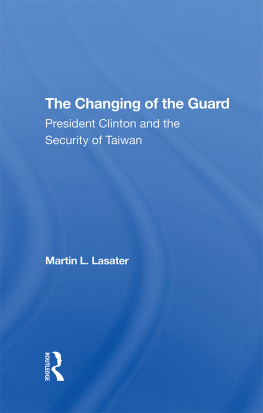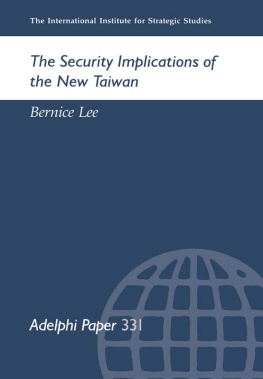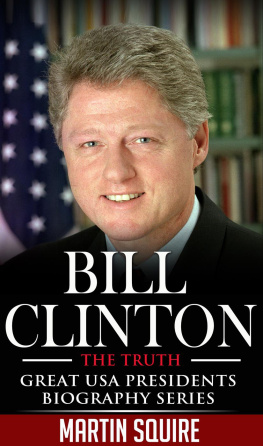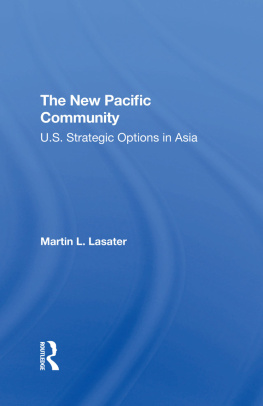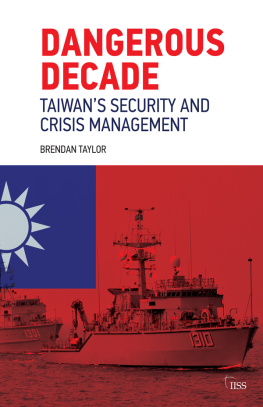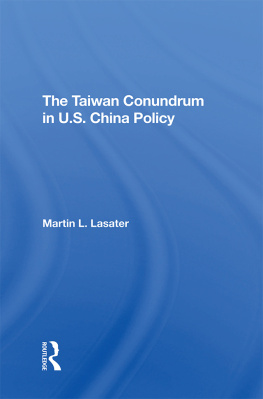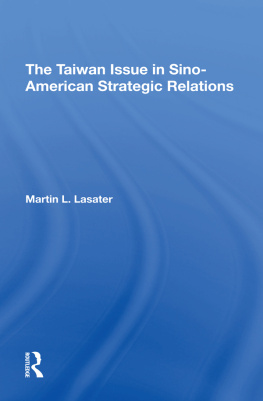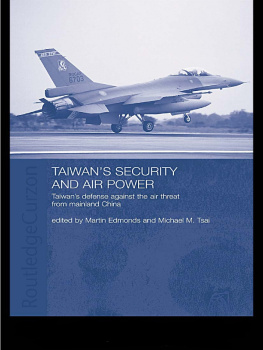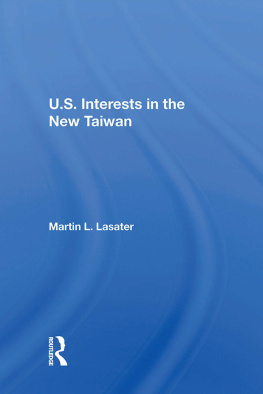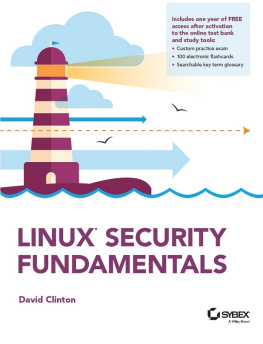First published 1995 by Westview Press, Inc.
Published 2019 by Routledge
52 Vanderbilt Avenue, New York, NY 10017
2 Park Square, Milton Park, Abingdon, Oxon OX14 4RN
Routledge is an imprint of the Taylor & Francis Group, an informa business
Copyright 1995 Taylor & Francis
All rights reserved. No part of this book may be reprinted or reproduced or utilised in any form or by any electronic, mechanical, or other means, now known or hereafter invented, including photocopying and recording, or in any information storage or retrieval system, without permission in writing from the publishers.
Notice:
Product or corporate names may be trademarks or registered trademarks, and are used only for identification and explanation without intent to infringe.
A CIP catalog record for this book is available from the Library of Congress.
ISBN 13: 978-0-367-29070-2 (hbk)
1
Introduction
The end of the Cold War has brought many changes to U.S. policy in Asia, but one area of continuity is the continued U.S. interest in peace and stability in the Taiwan Strait. From the outbreak of the Korean War in June 1950 through 1994, successive U.S. administrations determined it would be against American interests if the Republic of China (ROC) on Taiwan fell victim to aggression from the People's Republic of China (PRC) on mainland China. As this book will demonstrate, the PRC threat to Taiwan remains, necessitating continued U.S. involvement in Taiwan's security.
One purpose of this book is to suggest ways the Clinton administration can manage the issue of Taiwan's security within the context of Sino-American (PRC-U.S.) relations. As such, the book concentrates on major factors influencing the security of Taiwan in the 1990s; it does not provide an historical overview of the issue, for which the reader is referred to the bibliography. Factors discussed in this book include President Bill Clinton's foreign policies toward the Asian Pacific region, current U.S. policies toward both China and Taiwan, systemic reforms on Taiwan since 1986, the policy implications of the "new" Taiwan to the United States, the many elements comprising Taiwan's security environment, and the present PRC military threat to Taiwan. Also discussed are the various U.S. interests in Taiwan's security and the policy challenges faced by the Clinton administration over Taiwan in U.S. relations with the PRC.
The main conclusion of the book is that President Clinton should view Taiwan's security as a matter of continued importance to the United States. As will be discussed in detail, U.S. interests related to Taiwan's security include maintenance of peace and stability in East Asia, protection of a favorable balance of power in the region, protection of market democracies from authoritarian aggression, economic development and political stability in Asia, protection of human rights in China and Taiwan, and the avoidance of a U.S. war with the PRC.
Most of these interests have been important factors in U.S. policy toward China for decades. But in the 1990s there are significant changes in Taiwan's security environment which may require some adjustment of U.S. China policy. Of special concern in this regard are the policy implications of the modernization of the People's Liberation Army (PLA), increased calls on Taiwan for the island's independence, and the concentration of the American people on domestic issues rather than national security affairs.
It is important to keep in mind that the purpose of U.S. policy is not to divide China, but to persuade Beijing not to use force against Taiwan. This requires a delicate balance in U.S. policy so that the myriad U.S. interests in both China and Taiwan can be protected and served. While preserving this balance is in the U.S. interest, doing so has become increasingly difficult.
In large part, U.S. interests in the security of Taiwan hinge on the relationship between Beijing and Taipei. The United States has a strategic interest in a peaceful resolution of the future of Taiwan, the socalled "Taiwan issue." President George Bush in his 1991 statement of national security strategy expressed this interest as follows: "The United States maintains strong, unofficial, substantive relations with Taiwan where rapid economic and political change is underway. One of our goals is to foster an environment in which Taiwan and the People's Republic of China can pursue a constructive and peaceful interchange across the Taiwan Strait."
To protect its interests in peace in the Taiwan Strait, the United States encourages Beijing and Taipei to work out their differences without the use of force. To help ensure that this will be the case, the United States is deeply involved in both military and non-military aspects of Taiwan's security.
Taiwan's security is a very complex subject. It involves not only the military capabilities of the PRC and ROC, but also more intangible factors such as Beijing's intentions to use force in the Taiwan Strait, the political evolution underway in the "two Chinas," the reaction of other Asian countries, and the likelihood of U.S. military intervention in the event of hostilities between Taipei and Beijing. Answers to specific questions must be sought:
- Does the PRC intend to use force against Taiwan? If so, under what circumstances? What, precisely, are PRC political objectives in regards to Taiwan?
- Does the PRC have the military capability to use force against Taiwan? In what ways? How effective would those uses of force be in achieving Beijing's political objectives?
- What is the U.S. role in the defense of Taiwan? In what ways, if any, should that role change in the post-Cold War period?
The Taiwan issue is clouded by history and ambiguity. The Kuomintang (KMT) and the Chinese Communist Party (CCP) have engaged in fierce political struggle over the right to rule China since the mid-1920s. Today, that struggle continues in the minds of many Chinese on both sides of the Taiwan Strait. For the United States, the Taiwan issue has been one of the most persistent and difficult controversies in Sino-American relations. Ambiguity characterizes the Taiwan issue I resulting in vastly different assessments of key issues such as the nature of the PRC threat to Taiwan, the ability of the ROC to defend itself, and the likelihood of U.S. assistance to Taiwan in case of war. Much of this ambiguity is deliberately cultivated, part of the strategies of Beijing, Taipei, and Washington to confuse the other parties and to manage effectively the politically sensitive issue of Taiwan's future.
Where possible, an assessment of Taiwan's security should include at least three generic Chinese perspectives: the PRC, ROC, and the Taiwanese people. All three parties want to avoid war in the Taiwan Strait, but each has quite different interests in the future of Taiwan. An effort must be made to understand theSe viewpoints and their complex interaction.
From the perspective of the PRC, for example, the reunification of China is a fundamental national objective held since the founding of the People's Republic in October 1949. But how is reunification to be achieved? Many analysts believe that if the PRC elects to use force to achieve reunification, it must succeed quickly. Otherwise, Taiwan might gain international support for its defense and, possibly, for its independence as a separate nation-state. On the other hand, if the PRC uses peaceful means to achieve reunification, then Beijing must find a way to convince the people of Taiwan that their interests are best served by unifying with the mainland. This may require fundamental political and economic reform by the Chinese Communist Party and more generous terms for reunification than those offered thus far by PRC leaders.


